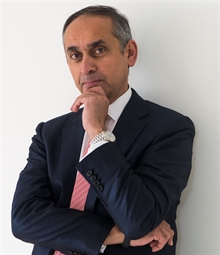01.02.15
Delivering affordable cancer care – meeting the challenge for now and future generations
Source: National Health Executive Jan/Feb 2015
Lord Darzi is chairing the upcoming World Innovation Summit for Health (WISH). One of the UK’s leading surgeons and cancer experts, as well as a noted leader in health policy and innovation, he argues that the Cancer Drugs Fund has bypassed the principles of fairness and value for money on which NICE was founded.
The rocketing cost of cancer care in the UK dominated the headlines in January when the Cancer Drugs Fund announced it would stop paying for 25 cancer treatments that could extend lives. Predictably, the announcement was met with criticism from leading cancer charities and pharmaceutical companies, who argued that the decision would put thousands of patients at risk. It forced the debate about how we best fund cancer care to the top of the health agenda.
Cancer is an emotive issue. The diagnosis always comes as a shock. When the National Institute for Health and Care Excellence (NICE) rules that a new cancer drug may not be provided on the NHS it invariably causes heartache and makes headlines.
That is why the Cancer Drugs Fund was set up in 2010 – to provide stopgap funding for new drugs awaiting assessment or those rejected by NICE, in order to take the political heat out of the issue.
The move worked for a while. It defused the increasingly desperate situation in which some patients were told they could not have the drugs their cancer specialist had recommended. In doing so, however, it bypassed the principles of fairness and value for money on which NICE was founded and has been roundly criticised for doing so.
But by the end of last year it was clear the Cancer Drugs Fund was running out of money, even after its annual budget was increased from £200m to £280m. On 12 January, NHS England announced a further increase in its budget to £340m from April – but, for the first time, blacklisted the most expensive drugs, which it said it would not prescribe.
This is a temporary solution to an intractable problem that goes beyond cancer drugs alone. Is cancer care affordable? I believe it is. Substantial savings can be made, which are identified in a report by an expert group to be presented at the World Innovation Summit for Health (WISH) in Doha on 17-18 February 2015, which I chair.
Cancer drug prices have risen at four times the rate of inflation, a rate that is hard to justify. There is evidence of doctors ordering unnecessary tests, over-treatment and needless use of expensive technology. Thousands of early-stage breast cancers unlikely to cause harm have been diagnosed and treated unnecessarily in women, while men with slow-growing prostate cancer have received needless, unpleasant interventions.
Aggressive treatment near the end of life is still common, despite being of questionable value. Many patients are being admitted for expensive hospital care when they could be better looked after at home – where most would prefer to be.
The WISH report advocates a movement towards community- and home-based care co-ordination models, where patients receive care as close to home as possible, while ensuring hospitals are able to focus on acute care services. Where possible, community models should be one-stop-shops to both enhance patient experience and benefit from economies of scale.
The report will also highlight innovative projects from around the world aimed at ensuring the maximum value is extracted from every pound spent.
In the UK, one example is the deal struck with pharmaceutical manufacturers under which they will refund the cost of drug treatment where it fails to have the expected impact. The makers of two drugs – bortezomib for the blood cancer myeloma (£9,000 to £25,000 per patient) and cetuximab for bowel cancer (up to £19,000) – have agreed to refunds for patients who do not respond.
The scale of the challenge is daunting and it will intensify. As populations age, more people are developing cancer, they are surviving longer with it and treatment costs are soaring. There were 331,000 new cases of cancer diagnosed in 2011 in the UK, up by 23% among men and 43% among women since the mid-1970s. The bill for treating them was put at £5.6bn by an Oxford University study published in 2012. The only way to help patients get the treatment they need is to ensure that every pound is used to the best effect. The UK spends more than twice as much as Spain on colorectal cancer, yet 61% of patients in Spain survive five years compared with less than 54% in the UK. Why is this the case? We need to know.

Professor the Lord Darzi
Tell us what you think – have your say below or email [email protected]